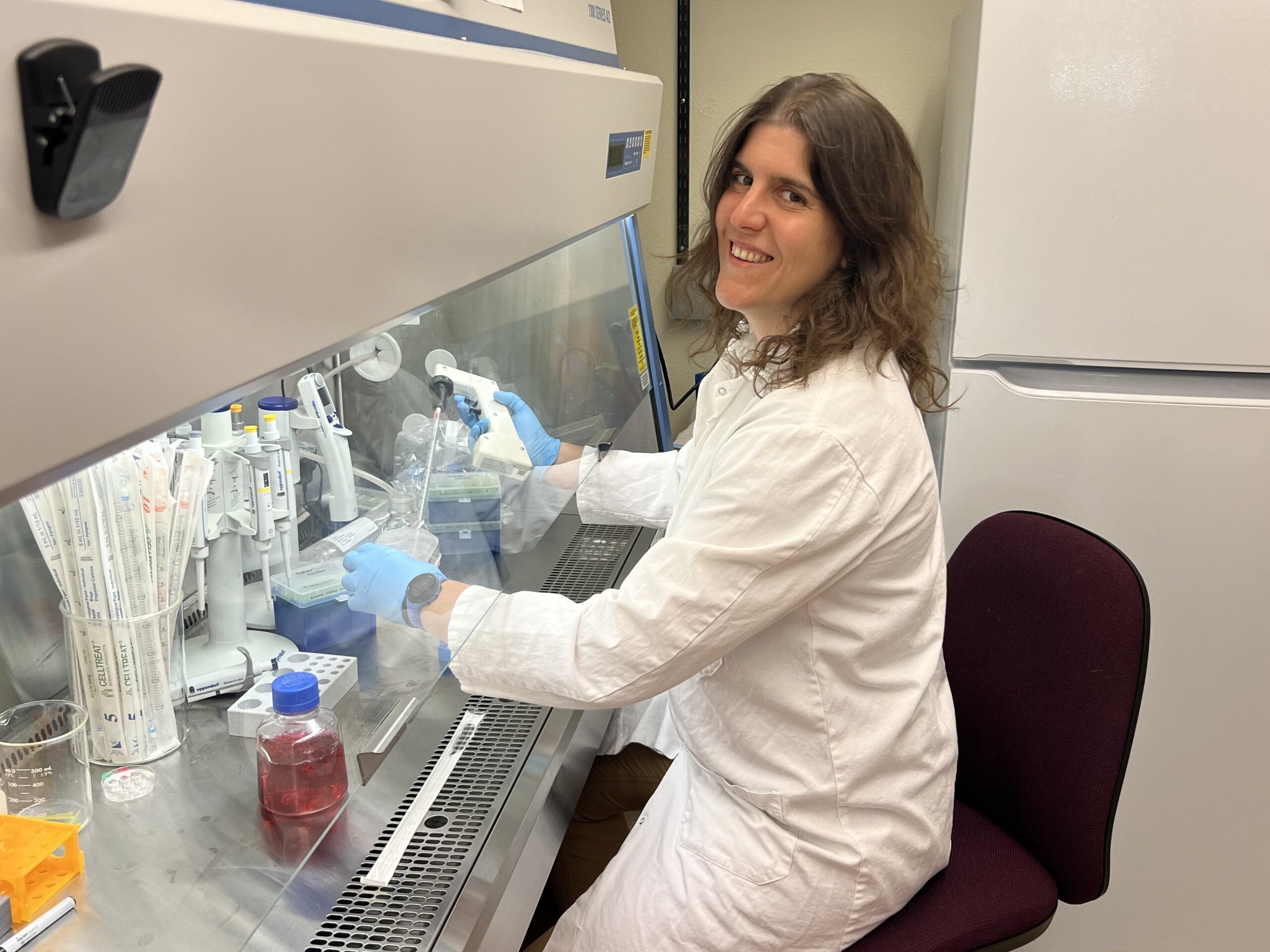
Boise State faculty member Sophia Theodossiou became one of 10 recipients nationally and Boise State’s first-ever Beckman Young Investigator Award winner, where big ideas in chemical and life sciences are recognized. She’s also the first female award winner.
The program provides research support to the most promising young faculty members like Theodossiou who are in the early stages of their academic careers, particularly to foster the invention of methods, instruments and materials that will open avenues of science research. Her grant is $600,000 over the project’s term, and a total funding of $6 million is awarded to scientists across the U.S.
Improving medical outcomes for people and animals
Today, we typically take pills or inject medicine into the muscle or under the skin. Instead, the College of Engineering’s Theodossiou wants to use silk microneedles to painlessly engage potent but largely overlooked immune response capabilities in our skin to profoundly improve medical outcomes by thinking about how we usually take medicine.
“We’re using the [Beckman award] to target global health challenges relating to solid transplant organ shortages, antibiotic-resistant bacteria and next-generation therapeutics based on living microbes,” Theodossiou said.
She’ll use the award to research silk-based biomaterials that improve outcomes for hard-to-treat conditions through drug delivery and 3D cell culture platform development. This approach may significantly improve treatment for widespread autoimmune and stress disorders, respond to an organ transplant crisis by extending donation windows, and overcome troublesome antibiotic resistance to prevent bacterial infection and transmission in people and livestock.
Research that leads to a better world
Theodossiou, an assistant professor in the Department of Mechanical and Biomedical Engineering, runs the Biomaterials and Musculoskeletal Engineering Laboratory. Inside the lab, she conducts research combining engineering, biology and materials science to understand how mechanical and biochemical signals drive musculoskeletal development, maturation and disease. Her goal is to regenerate musculoskeletal tissues following injury or disease and use biomaterials to control cell behavior and deliver therapeutics.
“From a young age, I wanted to leave the world a little better than I found it,” she said. “Science is a wonderful way to do that from inside and outside the lab. I always loved science classes and wanted to help people, so there was a natural intersection of my life goals in biomedical research.”
Theodossiou also extends her connections to science and the outdoors by teaching Wilderness First Responder Courses in Idaho for Desert Mountain Medicine, and supporting local food banks and humane societies.
She joins Micron School of Materials Science and Engineering Professor Scott Phillips who received this award in 2009 for his chemical amplification and responsive materials research while teaching at Penn State University.